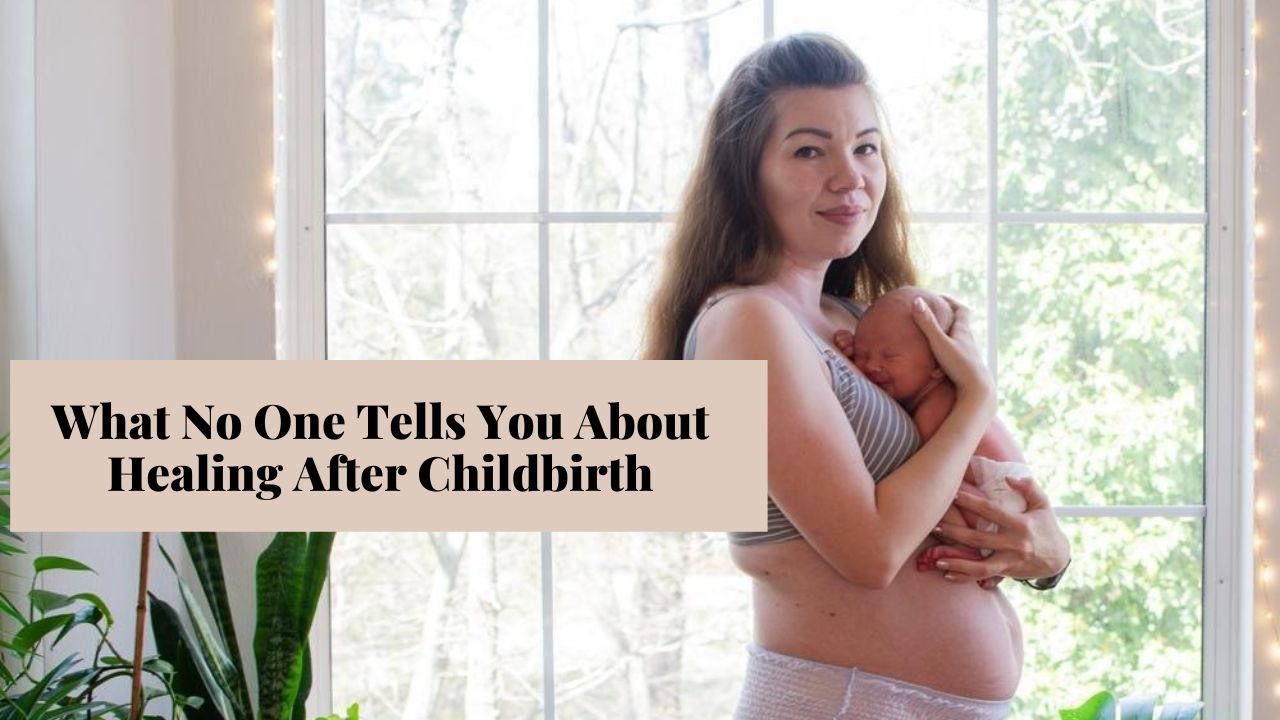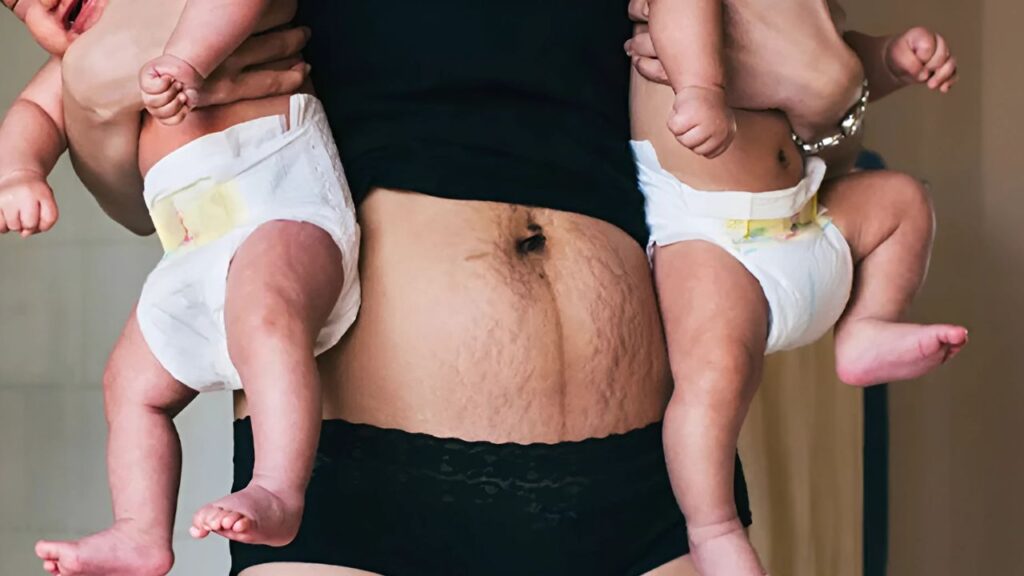What No One Tells You About Recovery After Childbirth
Nouman Bashir
August 2, 2025

Did anyone tell you what your body and mind really go through after having a baby? Probably not. Most people focus on the baby, but rarely talk about what happens to the mother.
Healing after childbirth can feel confusing and lonely. From soreness and bleeding to sleepless nights and mood swings, it’s more than just “bouncing back.” New mothers often find themselves overwhelmed, wondering if what they’re feeling is normal.
In this article, you’ll explore what truly happens during postpartum and recovery after childbirth. You’ll learn about the physical healing, emotional ups and downs and simple tips to make this journey feel a little more manageable.
What Happens to Your Body After Childbirth

After childbirth, your body begins a whole new kind of journey. It’s not just about the delivery, it’s about what comes next. Recovery can bring pain, bleeding, swelling and major hormone changes. These shifts are normal, but many moms don’t know what to expect.
Let’s take a closer look at the physical side of healing. From common body changes to sleep struggles, this section will walk you through what really happens in those early postpartum weeks.
Common Postpartum Body Changes
Vaginal soreness, bleeding and stitches
After a vaginal birth, soreness is common especially with tearing or an episiotomy. Bleeding, called lochia, can last for several weeks. Stitches may cause extra discomfort when sitting or using the bathroom.
C-section healing and incision care
A C-section is major surgery. Recovery includes pain around the incision, limited mobility and a longer healing time. It’s important to avoid heavy lifting and care for the wound to prevent infection.
Breast changes and engorgement
Your breasts may swell, leak or feel sore as milk comes in. Engorgement is uncomfortable and also makes nursing difficult. Wearing a supportive bra and feeding often can help relieve pressure.
Managing Pain and Discomfort
Safe medications and natural remedies
Certain medicines can ease cramping and swelling. For a gentler approach, herbal teas and warm compresses may also help relax sore muscles and support healing.
Using ice packs, sitz baths and support garments
Ice packs reduce swelling in the perineal area or around the incision. Sitz baths soothe soreness and promote healing. Postpartum support garments can help ease belly pain and support your back.
Sleep, Fatigue and Hormonal Shifts
Why rest is essential
Lack of rest slows recovery. Fatigue can make pain feel worse and emotions harder to manage. Even short naps help your body to heal and your mind to reset.
Tips for better sleep with a newborn
Sleep when your baby sleeps. Share nighttime duties with a partner if possible. Keep water and snacks by your bed and try to reduce screen time before sleep to calm your body.
Emotional and Mental Health Recovery After Childbirth

Physical healing after childbirth is expected, but emotional healing often goes unnoticed. New mothers may look fine on the outside while quietly struggling inside. The emotional load can feel heavy and filled with doubts, guilt and sudden mood swings that catch many by surprise.
Baby Blues vs. Postpartum Depression
It’s common to feel emotional in the first few days after birth. You might cry more easily, feel overwhelmed or swing between joy and sadness. These mood changes, known as the baby blues, usually fade within two weeks.
But if sadness lingers or if you feel hopeless, numb or disconnected from your baby, it could be postpartum depression. This condition is more serious and needs attention. You’re not weak for feeling this way. Reaching out for support is a brave and important step.
Anxiety, Guilt, and Identity Shifts
Many mothers feel anxious, even when things seem fine. Guilt can creep in over small things like how much you’re breastfeeding, or needing a break. Some feel lost in their new role, unsure of who they are beyond motherhood.
These feelings are real and valid. You’re adjusting to a big life change, and it’s okay if it feels messy. Talking openly with someone you trust can lighten the weight and remind you that you’re not alone.
Importance of Mental Check-Ins
Checking in with yourself matters. Writing down your thoughts in a journal, going to therapy or simply saying “I need help” can bring clarity and relief. Don’t wait for things to feel unmanageable. Early support leads to better healing, both mentally and emotionally.
Emotional recovery after childbirth isn’t always visible, but it’s just as important as physical healing. With honest conversations, proper care and steady support, new mothers can feel stronger, more grounded and less alone during this deeply personal transition.
Practical Tips for a Smoother Recovery After Childbirth

Postpartum life can feel unpredictable. Between feedings, healing, and figuring out a new rhythm, small steps can make a big difference. Recovery from postpartum can be easy. These practical tips offer simple ways to ease the load and bring some calm to the chaos.
- Ask for help and share the load
Accepting help doesn’t mean you’re failing. Partners, family and postpartum doulas can handle tasks like cooking, cleaning or watching the baby while you rest. - Build a gentle routine
Start with small goals. A short walk, a warm shower or drinking enough water all count. Light structure helps you feel grounded without adding pressure. - Stock up on essentials
Keep recovery underwear, nipple balm and ready-to-eat meals within reach. These little things can save time and energy when you’re running low on both. - Listen to your body
Rest when you feel tired. Don’t force movement or push through pain. Healing isn’t a race, and your body will guide you if you listen closely.
Recovery after childbirth doesn’t follow a strict timeline, and every mother’s experience is different. These small actions help create moments of ease, reminding you that it’s okay to slow down and care for yourself too.
Conclusion
Postpartum recovery doesn’t follow a straight path. Some days will feel smooth and others might feel overwhelming. That’s completely normal. Healing takes time, and there’s no set deadline to feel “back to normal.”
It’s okay to rest more, to feel emotional, or to need help. Your body and mind have been through a major change. Be kind to yourself during this time. Small steps forward still count.
Recovery after childbirth is more than just physical. It’s also emotional and mental. Whether you’re healing from stitches, sleep loss, or self-doubt, each part of your journey matters.
Every mother’s story is different, and each one deserves care, respect and support. You’re doing better than you think and your healing is worth honoring.



